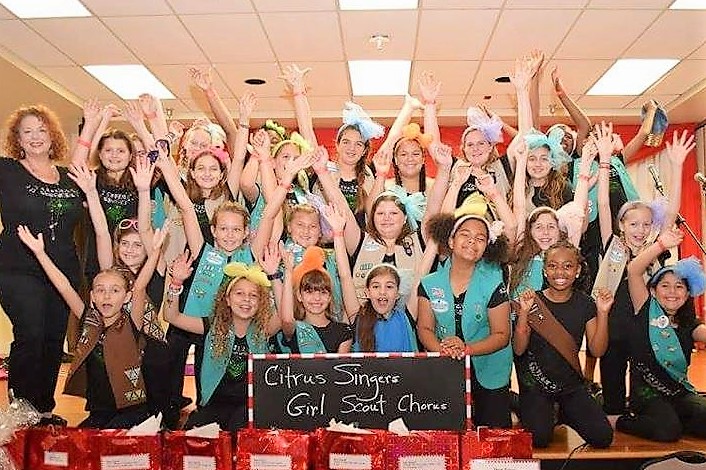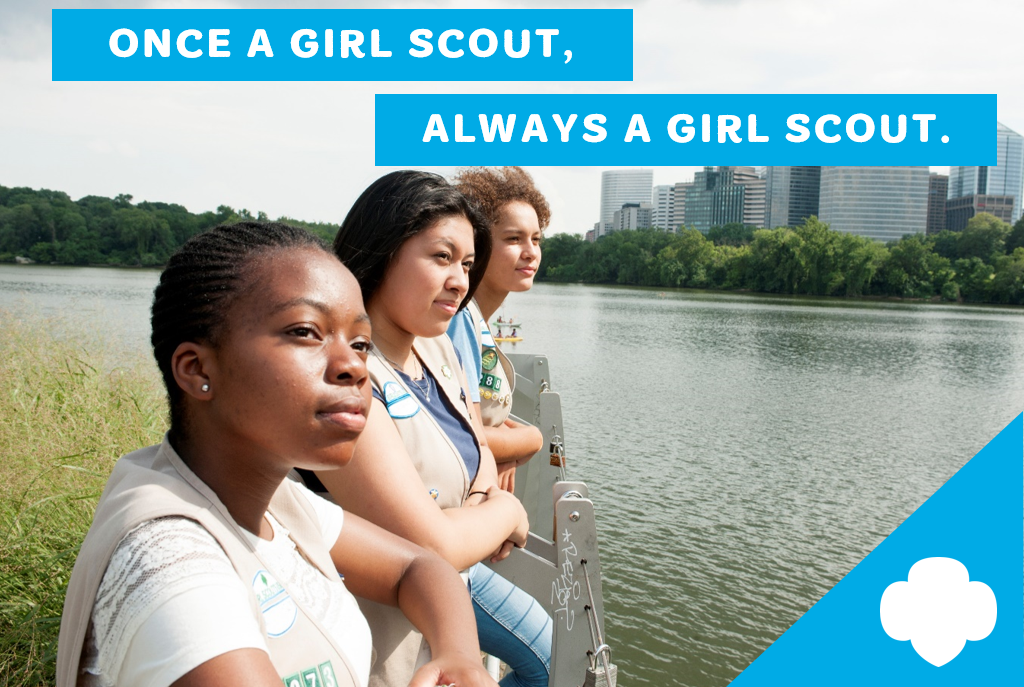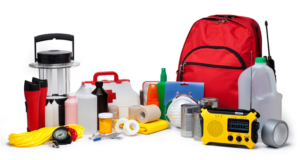In times of natural disaster, it’s everyone’s responsibility to come together to support and provide aid and comfort to those directly affected. And although it’s simply human to get caught up in the harrowing news coverage, it’s also important to note that the youngest members of our families and communities—your children—are watching and taking all of this in, too.
“Of course we all want to stay abreast of current events,” says Girl Scouts’ developmental psychologist Andrea Bastiani Archibald, “but when kids see footage of boys and girls their own age or even people who look like their grandparents in dire situations, it can be confusing and frightening.” But rather than brushing off catastrophic events as “nothing to worry about” or something that didn’t really happen, Dr. Bastiani Archibald suggests discussing the disaster in an age-appropriate way with your daughter. “Limit her access to the news, but if she’s already seen or heard about it, let her lead the conversation,” she suggests. “Stay calm—kids, especially younger ones, take their emotional cues from parents—and ask her what she thinks happened. But most of all, ask how she’s feeling. If she says she feels sad or frightened for the people affected, it’s absolutely fine to tell her that you feel sad and frightened for them, too. These feelings are nothing to be ashamed of, and knowing that you feel similarly will help her feel less alone.”
Respond to her questions as best you can with age-appropriate, short answers and limited information. Very young children might not have many or any questions, but older girls might ask about the particular type of weather or natural disaster. Do your best to use words your daughter might already know, like storm, rain, and wind—but explain that these are much stronger and heavier than usual and quite rare.
Let her know that you’ll always do everything you can to keep her safe. And although you don’t want to give her false assurances that a natural disaster like the one she’s witnessing could never happen in your region, it’s also not helpful at this moment to dwell on the fact that it could. If she’s old enough to understand, let her know about the emergency preparations and procedures already in place for your family, your community, and even her school that could keep her out of harm’s way in case of an emergency. These plans are a “just in case” and will likely never be necessary, but her safety is your top priority, and so you make sure you’re prepared for any situation.
If your girl asks about family or friends who were directly affected, answer honestly but in short, direct answers. “If you’ve been in touch with loved ones in the area of the disaster, let your child know that and reinforce the positive—that they’re safe—if there’s positive information to report,” says Dr. Bastiani Archibald. “In the case that you’re still trying to reach family and friends, let her know that you’re doing your best to connect with them and that there are good people on the ground in the affected area who are helping those in need. In fact, your loved ones might be busy helping take care of others right now.”
Beyond that, it’s helpful to explain to your girl what you and your community have already done or plan to do to help the people hardest hit in the disaster. Perhaps you’ve sent money to an aid organization to help families in need, or maybe a family member has traveled to the scene to offer medical assistance. “If your daughter is old enough, you might even want to have her help you research ways to lend a hand and give back,” says Dr. Bastiani Archibald. “We know donating money is often best, so she could play an active role in fundraising or researching organizations accepting donations. Additionally, she could look into alternative ways of helping—like fostering pets who may have been displaced in the disaster.”
Talk to her about the kinds of things people might need in the months and even years after a disaster. Perhaps a school that was heavily affected could use new books to stock its library. Or a Girl Scout troop in the disaster zone might appreciate replacement outdoor gear, art supplies, or even just notes of friendship and support in the months to come.
Getting involved, giving back, and making a difference are actions we all can and need to take when disaster strikes. Involving your daughter will not only potentially expand the impact you can make but also teach her about empathy and give her a sense of her power to do good in the world.
 Uncategorized
Uncategorized






